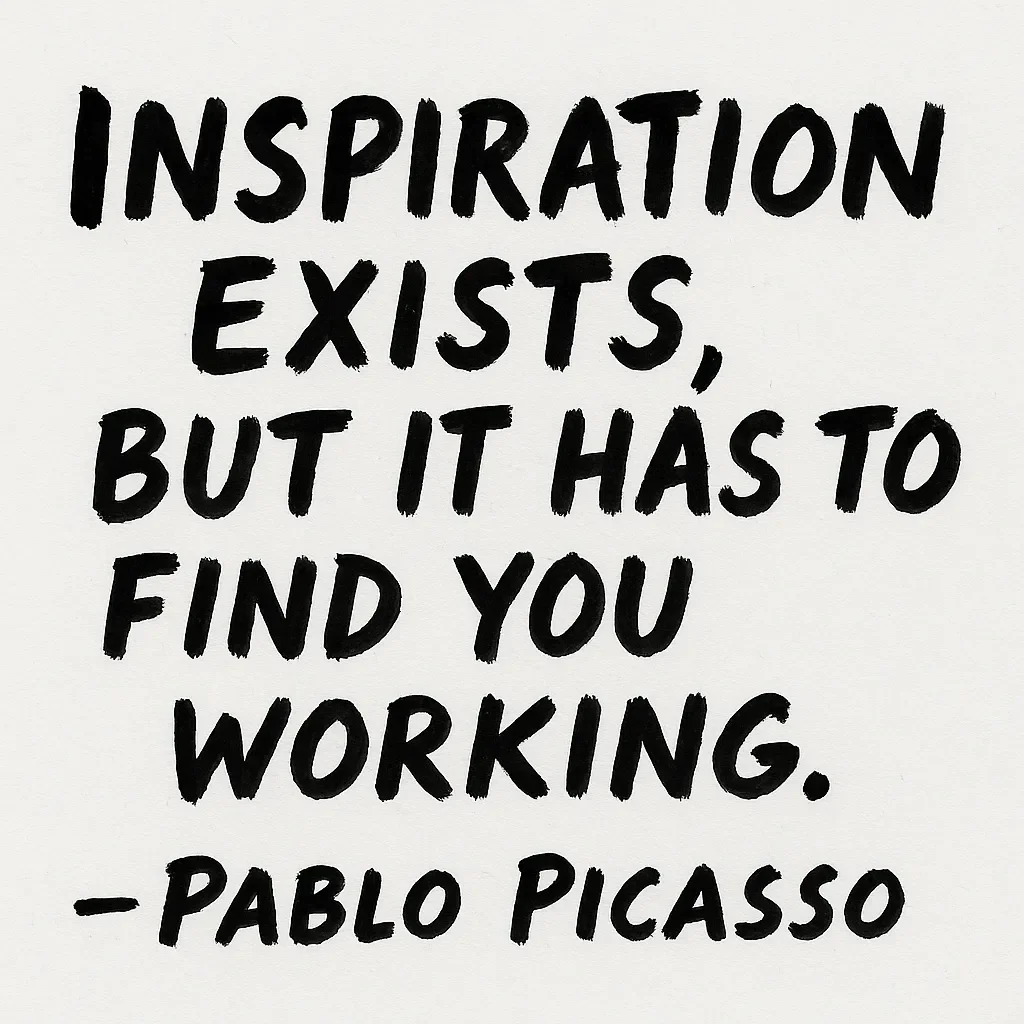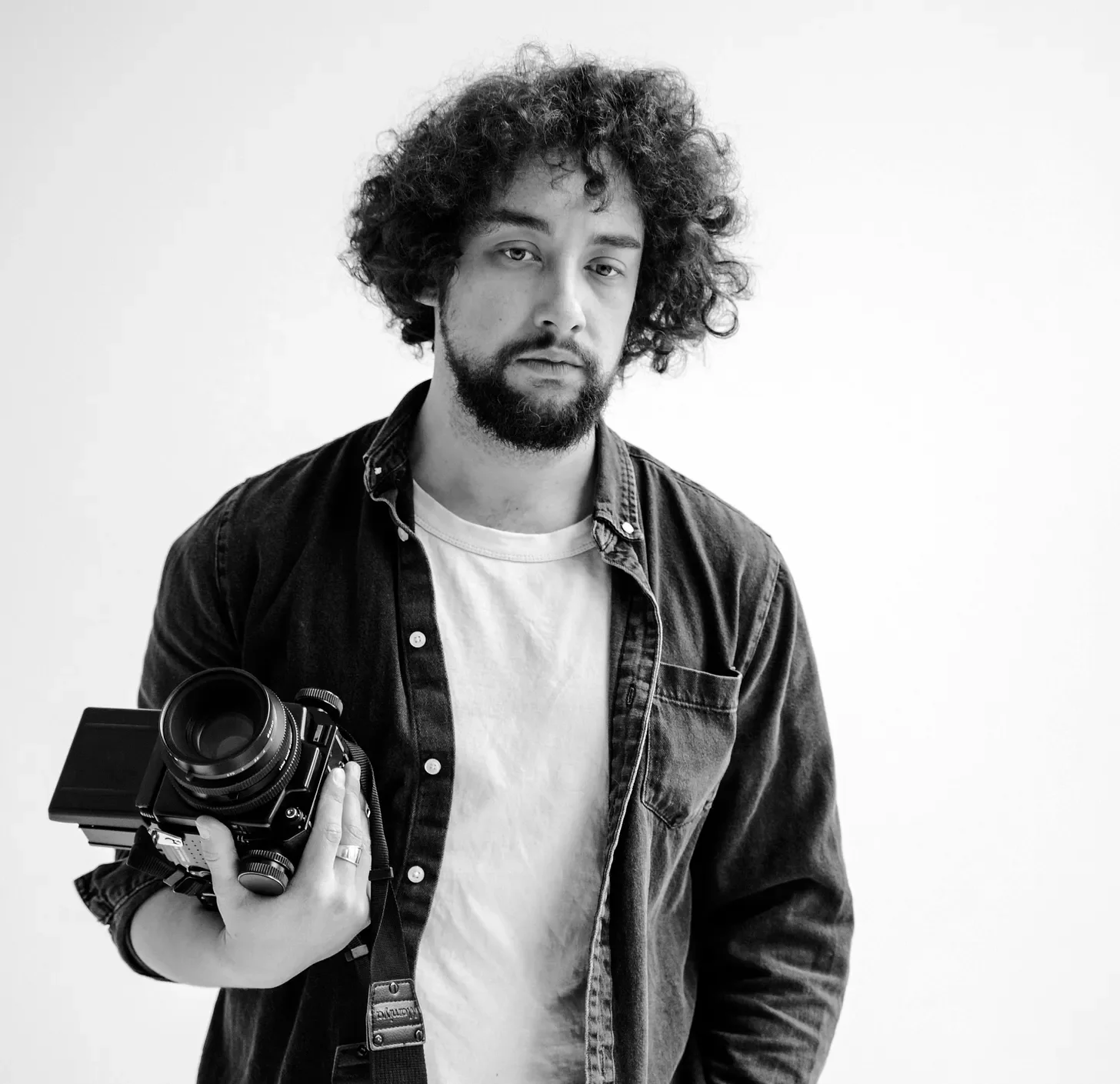Thoughts on Inspiration vs. Intention: We Succeed Because We Begin
I've often heard people say that creative people feel "a spark" that makes them do what they do. It's as if we need to feel something before we can actually make something. That a certain mood has to land. Some rare mix of clarity, energy, and excitement must materialize before we can begin. Is it supposed to feel like a light switch that turns on our desires and abilities?
Sometimes this does happen. Sometimes I wake up in the morning with that spark already humming in my chest. Other times, it hits in the shower, while mowing the grass, or listening to a song I’ve heard a hundred times before. It can feel like a gift—like something outside of me has offered a tiny miracle just for being in the right headspace.
I've heard it said that "creativity is a process of receiving rather than producing." I believe that. But most days, that feeling doesn’t come—not on its own. If I waited to feel inspired all the time, I wouldn’t create much at all.
That’s where intention comes in.
This photo is a visual representation of intention for me. Simply picking up the tool and holding it at the ready is all you have to do to get started. Then, just move forward. (Photo: Tima Miroshnichenko - Cropped and modified by Chris Auman)
Inspiration is a feeling. Intention is a choice. Inspiration comes and goes. Intention is steady. It’s the quiet commitment to begin, even when we’re tired, distracted, or not in the mood. It doesn’t reject inspiration—it just doesn’t rely on it.
When we create from intention, we give ourselves a foundation. And often, that’s when inspiration shows up anyway, drawn in by the movement we’ve already begun.
I’ve come to depend on intention. I still try to stay open to inspiration—to slow down and receive what the world might offer. But I’ve noticed something important: the more often I simply commit to begin, the more often inspiration shows up midway through the work. Not before. Not at the start. But once I’m already in motion.
That’s the paradox worth holding onto: inspiration can be less of a prerequisite and more of a byproduct.
As creative people, we like the idea of being swept away. Of getting struck by an idea so strong that we forget to eat, lose track of time, and ride the wave into something great. But that’s not a practice. That’s just a great moment. And moments don’t carry us through a creative life. Practices do.
The real magic comes from learning how to start. Not dramatically or perfectly. Just honestly. Even in a bad mood. Even when we’d rather do something else. Even when that familiar voice in our head says it’s pointless. We look those excuses in the eye and start anyway.
By starting, we make space for the possibility. We say: this matters enough to begin, even if it doesn’t go well today.
There’s a quiet power in that. A self-respect. We’re not waiting for a lightning bolt. We’re just showing up with the materials and time we’ve got, choosing to make something as we head into the unknown.
That’s what intention looks like. It’s a willingness to begin without guarantees.
It reminds me of athletes training for a marathon. They don’t wait to feel energized before running. They lace up early in the morning, rain or shine, and walk to the starting line. I know because I recently trained for and completed a quarter marathon. When you hear that starting gun, your body and mind adapt. The act of beginning becomes its own kind of readiness—and it launches you forward. Along the way, you remember all the reasons you started in the first place, and it becomes worth it.
The same is true in creative work. The more often we show up and begin, the more we realize how important it is to simply start. We stop needing the perfect mindset, the perfect moment, the perfect anything. And in letting go of that pressure, we create the opportunity for the inspiration and the work to meet us where we are.
We succeed because we’ve chosen to.
And that’s the kind of spark we can rely on.

